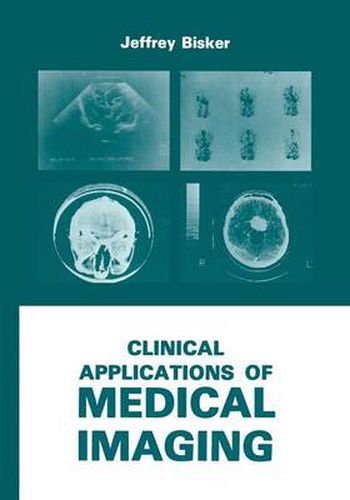Readings Newsletter
Become a Readings Member to make your shopping experience even easier.
Sign in or sign up for free!
You’re not far away from qualifying for FREE standard shipping within Australia
You’ve qualified for FREE standard shipping within Australia
The cart is loading…






This title is printed to order. This book may have been self-published. If so, we cannot guarantee the quality of the content. In the main most books will have gone through the editing process however some may not. We therefore suggest that you be aware of this before ordering this book. If in doubt check either the author or publisher’s details as we are unable to accept any returns unless they are faulty. Please contact us if you have any questions.
The primary purpose of this book is to bridge the gap be tween the practice of clinical medicine and diagnostic radi ology. It is intended primarily for utilization by medical students in training and by nonradiologist physicians. In this world of rapidly expanding knowledge in the many specialties of medicine, it is becoming increasingly difficult for many physicians to stay abreast of the newer and constantly changing modalities of diagnosis as well as the therapeutic regimens of the common as well as the less common disease processes within their realm of practice. This book will enable the busy clinician to utilize the consultative services offered by his or her colleagues in diagnostic radiology with maximum effectiveness. The most common clinical applications of the more recent imag ing modalities (i. e. , nuclear medicine, ultrasound, comput erized tomography, and magnetic resonance imaging) have been categorized and condensed into a format that will be both comprehensible and useful on a daily basis for those physicians routinely requesting these diagnostic examina tions for their patients. For simplicity, the book is divided, whenever feasible, into organ systems and subdivided into the multiple classifications of pathologic states (i. e. , con genital, trauma or iatrogenic, inflammatory, and neo plasm). In addition, there are brief comments related to the vii specific advantages and disadvantages as well as the cost effectiveness of each modality.
$9.00 standard shipping within Australia
FREE standard shipping within Australia for orders over $100.00
Express & International shipping calculated at checkout
This title is printed to order. This book may have been self-published. If so, we cannot guarantee the quality of the content. In the main most books will have gone through the editing process however some may not. We therefore suggest that you be aware of this before ordering this book. If in doubt check either the author or publisher’s details as we are unable to accept any returns unless they are faulty. Please contact us if you have any questions.
The primary purpose of this book is to bridge the gap be tween the practice of clinical medicine and diagnostic radi ology. It is intended primarily for utilization by medical students in training and by nonradiologist physicians. In this world of rapidly expanding knowledge in the many specialties of medicine, it is becoming increasingly difficult for many physicians to stay abreast of the newer and constantly changing modalities of diagnosis as well as the therapeutic regimens of the common as well as the less common disease processes within their realm of practice. This book will enable the busy clinician to utilize the consultative services offered by his or her colleagues in diagnostic radiology with maximum effectiveness. The most common clinical applications of the more recent imag ing modalities (i. e. , nuclear medicine, ultrasound, comput erized tomography, and magnetic resonance imaging) have been categorized and condensed into a format that will be both comprehensible and useful on a daily basis for those physicians routinely requesting these diagnostic examina tions for their patients. For simplicity, the book is divided, whenever feasible, into organ systems and subdivided into the multiple classifications of pathologic states (i. e. , con genital, trauma or iatrogenic, inflammatory, and neo plasm). In addition, there are brief comments related to the vii specific advantages and disadvantages as well as the cost effectiveness of each modality.